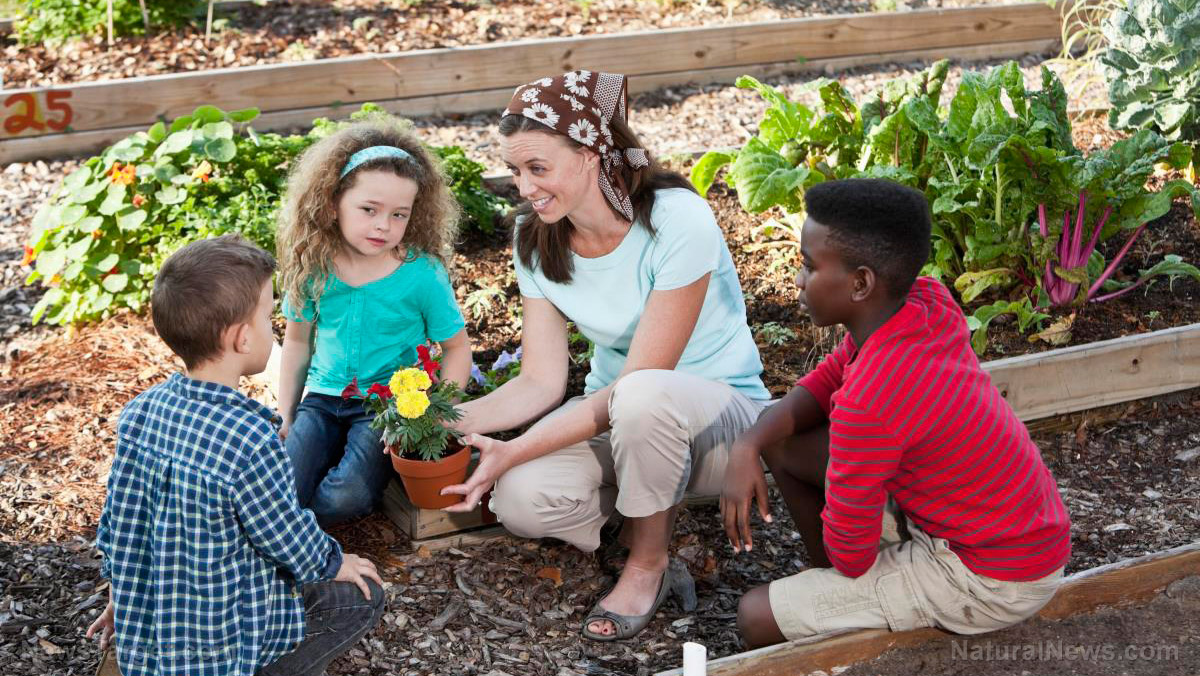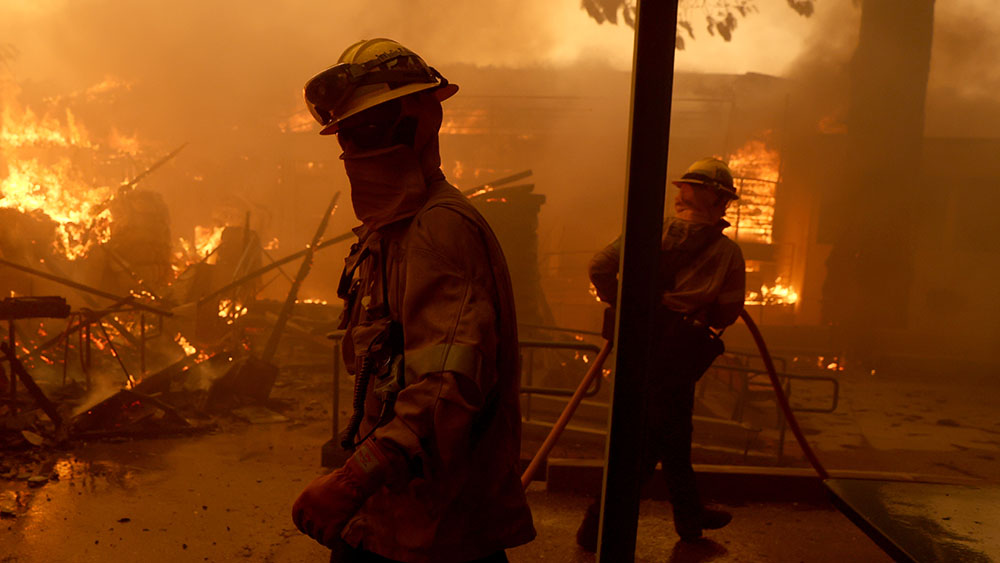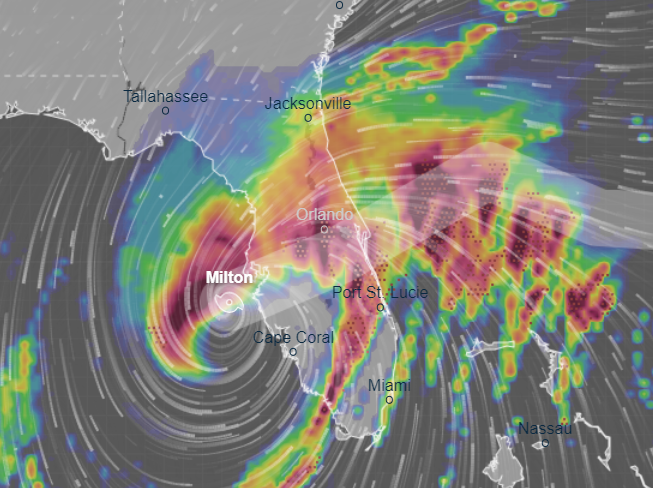
Here are some of the basic survival and prepper skills your kids need to learn:
Overcoming fear of the dark
Get them off the couches and lead them on their own adventure outside. This is necessary for bug-out situations where they have to move out during the night.
Start by accompanying them on walks after dark. Better yet, let them play flashlight tag with other kids.
Turn off the power or the lights in the house at night and let your kids practice finding a flashlight or night light and getting to a designated rendezvous point.
What to do when home alone
Teach them not to answer and open the door for anyone. (Related: Alex Jones: Millenials are losing basic skills, making them susceptible to NWO control.)
Make sure they know to call you immediately if they see anyone they think may try to enter the home when they are home alone. Keep the windows and doors locked as well as the blinds and curtains shut.
Tell them to turn on the TV or the radio. Potential intruders may be discouraged from coming in if they hear speaking and noise and it seems someone is home. Make sure they know they have permission to call 911 if anyone actively attempts to get inside the home.
Hiding for safety
Hide-and-seek games can be useful in emergency situations. Playing this game will familiarize them with different safe spots in your home where they can hide in case there's trouble.
When that time comes, tell them to stay hidden until you or a trusted adult comes near. But you should also remind them that they should NEVER hide if the home is on fire. Instead, tell them to get out of the house and go to a predetermined meeting spot.
Communication skills
Every family should have a plan for communicating with one another when plans change, or things go wrong. If you teach your kids the importance of communicating their whereabouts daily, it will ensure that they do this in a survival or SHTF situation, when their life may depend on it.
One of their first instincts in an emergency should be to get a message to you. Your kids should know your phone number and at least two other phone numbers of trusted adults they can contact in an emergency. Just having numbers on their phone is not enough.
Emergency numbers should be memorized and should also be written down in their backpack, wallet or purse so they have them even if their phone dies, is lost, damaged or is stolen.
If possible, they should have alternate ways to contact you.
How to make cordage
Start by teaching your child about paracord and how to divide the strands of a bracelet, braid strands of paracord to make it stronger, etc.
Then teach them how to make their own cordage from natural materials or materials they can find. There are a wide variety of materials that can be used for cordage if your child knows how to locate it and prepare it.
Knot tying
No matter what type of survival task they are trying to complete, the ability to tie a good knot will come in handy.
Teach your child different knots and when to use them for shelter building, fishing, securing gear, traps or snares, etc.
Staying fit
If their playtime consists of playing video games and sitting on the couch the whole day, better get them outside immediately. Make them eat those vegetables and have them exercise.
Playing outside can be counted as exercise so it shouldn’t be that hard. Just being able to walk or run long distances, sprint for short distances or climb trees can help kids stay fit.
It’s also a good workout to teach kids how to swing an ax, push a lawn mower, rake leaves, etc. Physical fitness can be crucial in survival situations and can sometimes be the difference between life and death.
Scavenger hunts
This activity is a great way of looking for usable items in case disaster strikes and the supplies run low. Have them collect as much as they can and teach them which objects are useful and which are not.
Guide them to consider new places to forage for usable items and to think outside the box. Stress the importance of timing, respect for nature and avoiding other desperate people when foraging.
Encourage them to think of uses for the items or ways to modify them for use that you may not have thought of.
Signaling for help
When hiking in the woods, teach your children to signal for help in case they get separated or lost.
Dress them in bright colors to make them very easy to spot at a distance. Talk about how to use universal distress signals if rescuers are searching by land, air or sea.
Pack them a signal mirror or a whistle and teach them how to use these to signal. For the mirror, aim the reflected light toward the direction of your camp. For the signal whistle, blow three blasts, stop and listen for a minute, then blow again.
Reading a map, compass and GPS
It is important for kids to know how to read a map and use a compass and GPS in case they get separated. They can also use this to find their way home.
Every child should know their street address and city. Point out landmarks such as the library, a water tower, railroad tracks, etc. that are near your home.
For young children, you can make a game of finding your way home from school, the grocery store or soccer practice. Take a different route than what they are used to and ask the kids to tell you which turns to make to get home.
When you are outdoors in the yard, a park or another location, make learning navigation fun by doing a treasure hunt and drawing a map to find the treasure for practice. You can also print out maps of the city and point out different bug-out routes that are planned.
Situational awareness
Even if you accompany your kids, they must always be aware of what's happening around them. When in the car, you can play the license plate game; description game (observing a certain area and recalling every detail by memory); or "the right way to" game (giving driving directions).
How to keep a positive attitude
One of the most critical skills your child can have in a crisis or SHTF situation is the discipline to keep a positive attitude regardless of what may be going on around them.
Negativity in a crisis can result in reactive thinking or even depression or suicidal thoughts. Teach your kids to persevere no matter what life throws at them so that they can keep going even under the worst circumstances.
Visit SHTF.news for more prepping and survival tips.
Watch this video to learn about basic survival skills for children.
This video is from the Daily Videos channel on Brighteon.com.
More related stories:
Basic outdoor survival skills that will help you when SHTF.
Survival essentials: 5 Bushcraft skills for preppers.
Survival basics: 7 Essential skills for modern preppers.
Sources include:
Please contact us for more information.






















